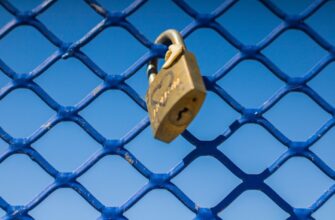- Why Crypto Wallet Security Can’t Be Ignored
- 1. Choose Your Wallet Type Wisely
- 2. Fortify Your Setup Process
- 3. Guard Your Seed Phrase Like Gold
- 4. Implement Military-Grade Access Controls
- 5. Master Safe Transaction Habits
- 6. Maintain Software Vigilance
- 7. Recognize & Avoid Scams
- 8. Prepare for Physical Threats
- Frequently Asked Questions
- What’s the most secure crypto wallet type?
- Can someone steal my crypto if they have my public address?
- How often should I check my wallet security?
- Is it safe to store my seed phrase in a password manager?
- What should I do if my wallet is compromised?
- Final Security Checklist
Why Crypto Wallet Security Can’t Be Ignored
With over $3.8 billion lost to crypto theft in 2022 alone, securing your digital assets isn’t optional—it’s essential. A crypto wallet is your personal vault for blockchain assets, and its security determines whether your investments stay protected or vanish overnight. This guide delivers actionable best practices to secure your crypto wallet safely against hackers, scams, and human error.
1. Choose Your Wallet Type Wisely
Not all wallets offer equal protection. Your choice forms the foundation of security:
- Hardware Wallets (Cold Storage): Physical devices like Ledger or Trezor that store keys offline. Most secure for long-term holdings.
- Software Wallets (Hot Wallets): Mobile/desktop apps (e.g., Exodus, Trust Wallet). Convenient for frequent transactions but more vulnerable.
- Paper Wallets: Physical printouts of keys. Immune to hacking but prone to physical damage or loss.
- Custodial Wallets: Exchanges like Coinbase hold your keys. Only use for small, active trading amounts.
Best Practice: Use hardware wallets for >80% of your crypto portfolio.
2. Fortify Your Setup Process
A weak setup creates permanent vulnerabilities:
- Download wallets ONLY from official websites or app stores
- Initialize the wallet offline when possible
- Create a complex password (12+ characters with symbols, numbers, uppercase)
- Generate a new seed phrase—never reuse existing ones
3. Guard Your Seed Phrase Like Gold
Your 12-24 word recovery phrase is the master key to your crypto. One slip = total loss.
- NEVER store digitally: No cloud, email, or screenshot
- Use cryptosteel or engraved metal plates for fire/water resistance
- Split phrase and store halves in 2+ secure locations (safes, safety deposit boxes)
- Share only with trusted heirs via secure legal channels
4. Implement Military-Grade Access Controls
Layer your defenses:
- Enable Two-Factor Authentication (2FA) using authenticator apps like Google Authenticator—never SMS
- Use biometric locks (fingerprint/face ID) on mobile wallets
- Whitelist withdrawal addresses to prevent unauthorized transfers
- Install antivirus software on all connected devices
5. Master Safe Transaction Habits
Most theft occurs during transactions:
- Triple-check recipient addresses—malware often alters copied addresses
- Start with small test transactions
- Never transact over public Wi-Fi—use VPNs if essential
- Verify contract addresses through multiple sources before token approvals
6. Maintain Software Vigilance
Outdated software is hacker bait:
- Enable auto-updates for wallet apps and device OS
- Update firmware on hardware wallets quarterly
- Delete unused wallet apps/browser extensions
- Monitor official social channels for security alerts
7. Recognize & Avoid Scams
Sophisticated cons target crypto holders daily:
- Phishing: Verify URLs before logging in—scammers clone wallet sites
- Fake Support: Legitimate services never DM first or ask for keys
- Airdrop Traps: “Free” tokens requiring wallet connections are often theft schemes
- Malware: Never install suspicious “crypto tools” or cracked software
8. Prepare for Physical Threats
Security extends beyond digital:
- Use decoy wallets with minimal funds on frequently used devices
- Never reveal crypto holdings in public or on social media
- Consider multi-signature wallets for large holdings (requires 2-3 approvals per transaction)
Frequently Asked Questions
What’s the most secure crypto wallet type?
Hardware wallets provide the highest security by keeping private keys permanently offline. They’re immune to remote hacking attempts targeting internet-connected devices.
Can someone steal my crypto if they have my public address?
No. Public addresses are for receiving funds only. Theft requires access to your private keys or seed phrase.
How often should I check my wallet security?
Perform monthly security audits: update software, review transaction history, confirm backup integrity, and check connected app permissions.
Is it safe to store my seed phrase in a password manager?
Absolutely not. Password managers are online targets. Always store seed phrases physically offline using fire/water-resistant methods.
What should I do if my wallet is compromised?
Immediately transfer funds to a new secure wallet using a clean device. Then reset all related passwords and 2FA. Report theft to authorities—though recovery is unlikely.
Final Security Checklist
Before storing significant crypto, verify you’ve implemented:
- Hardware wallet for primary storage
- Metal-backed seed phrase in multiple locations
- 2FA enabled (non-SMS)
- Whitelisted withdrawal addresses
- Regular software updates scheduled
Remember: In crypto, you are the bank. These practices aren’t just recommendations—they’re the bedrock of asset preservation. Implement them today to sleep soundly knowing your digital wealth stays truly yours.








